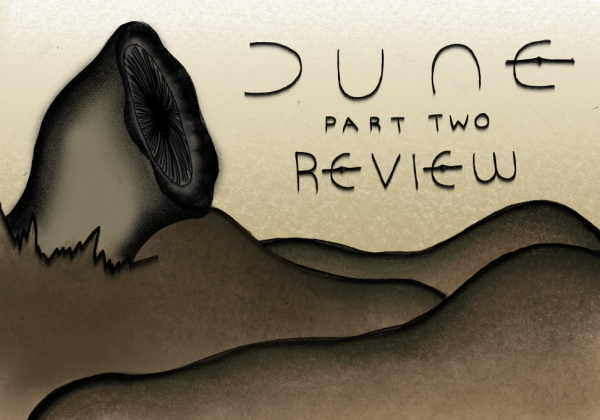‘An Absolutely Remarkable Thing’ Develops a Remarkable Narrative
“Knowing something is a bad idea does not always decrease the odds that you will do it.” – April May, An Absolutely Remarkable Thing
Following in the footsteps of his brother John Green, internet creator and educator Hank Green has released his debut novel An Absolutely Remarkable Thing. The book, categorized by Green as speculative fiction, which is a narrative fiction novel with futuristic or supernatural elements, dives into topics ranging from fame to politics to fear, and recounts a suspenseful and mystery-filled tale through a unique perspective.
The story starts one night when April May, a young graphic designer, accidentally stumbles across a giant robot statue in Manhattan, New York, that she describes as “a ten-foot tall Transformer wearing a suit of samurai armor.” Her friend, Andy Skampt, then uploads a video featuring her and the bizarre sculpture, which she names Carl, online. When several of the same statues strangely appear in major cities all around the world, the video goes viral and April is thrown into the fast-paced and unfamiliar environment of being famous. As she becomes more well-known, April must simultaneously deal with the repercussions that her celebrity status has on her personal life, as well as find out what these alien statues want with humans.
The novel’s combined humor and emotion makes relating to April’s point of view easy despite her unique circumstances. April is perfectly portrayed as a realistically flawed character who shifts from trying to avoid social media to obsessing over her reputation on the internet. Her inner turmoil, self-hate, and fear of commitment push her to become addicted to her online audience. This craving leads her to prioritize public attention over relationships, gradually distancing herself from her family, friends, and girlfriend. Through April’s own thoughts, Green depicts the degradation of her individuality and personality that overarches the whole plot.
It’s an interesting transformation, and not one that is often discussed in the real world. Fame is mostly viewed in a good context, but this book introduces the darker sides of the same concept. It shows the dehumanizing elements of fame. The most obvious way this manifests is with the hate that celebrities often receive and how it hurts their physical and mental safety. Every action they take is heavily judged by people who forget that they are real humans who can make mistakes or live their own life how they want. Even positive attention can have negative effects. In the eyes of fans, many famous people can become more like brands or symbols for movements and ideas (for example, social justice campaigns or political ideologies) rather than humans. As seen in the book, this can corrupt the person’s state of mind, lead them to lose their own sense of self, and spirals them down into destructive tendencies. In multiple ways, fame pressures celebrities by stacking overwhelming responsibilities on them and forcing them to conform to other people’s expectations.
In the end, An Absolutely Remarkable Thing provides one of the most thought-provoking and rare social commentaries on the media, unity, politics, and broader society. I would recommend it to anybody who is a fan of science fiction or wants to explore a different viewpoint of the world we live in today. This novel is one of few that incite discussion on uniquely profound topics while presenting intriguing stories to enjoy.

This is my second year on the student press staff and first year as an opinion editor. Aside from writing stories and taking photos for press, I spend...







